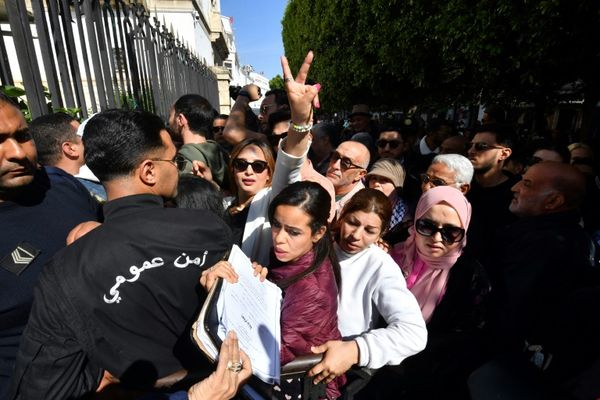IT took Liz Truss’s Government just under a month to see the value of the pound drop to historic lows, the Bank of England being forced to step in and save pension funds from collapse and an enormous hike in the cost of government borrowing. These are the seven days it took for the Tories to nearly crash Britain’s economy.
Friday Kwasi Kwarteng announces his mini-Budget to shock from opposition benches and some in his own party. The Tories’ big plan is to cut taxes for the very rich by borrowing huge sums on the state credit card. Bankers’ bonuses will no longer be capped, which he says will allow the UK to better compete as a centre for international finance.
The Chancellor justifies his tax-slashing bonanza saying the UK’s debt burden relative to GDP is low and we can afford it and gifting cash to the already wealthy will boost investment and growth. There is anger from Tory opponents he dodged independent scrutiny of the “fiscal event” by not billing it as a full Budget, meaning it escaped a mandatory assessment from the Office for Budget responsibility.
His opponents say he is taking from the poor and giving to the rich, while accusing him of forcing future generations to service the debt of his freebies to the well-off. But mostly they are stunned by what has been seen as the brazen return of Thatcherite economics. The pound begins to plunge in international currency markets.
Saturday After markets closed on Friday, the pound had had its worst day since the beginning of the pandemic, reaching its lowest level against the dollar for 37 years. About 3% of its value had been wiped off in the immediate aftermath of the “fiscal event” the day before.
The return on government bonds – called gilt yields – spiked as well, meaning the cost of state borrowing massively increased, which observers said put a spanner in the Chancellor’s plans – if they were predicated on the cost of borrowing remaining relatively low, the gamble becomes riskier if it is harder to service the government’s debt.
Commentators start raising serious concerns about the performance of the UK economy, with Nobel Prize-winner Paul Krugman saying the country is trading like a “developing country, where perceived fiscal irresponsibility is undermining confidence in the value of its currency”.
Sunday The Sunday papers report Kwarteng, undeterred by the volatile reaction to his mini-Budget, is planning even more financial interventions, with the Sunday Express reporting the package was “just the start” and the Sunday Telegraph says the new year could bring yet more tax cuts.
There is also rumblings of a Cabinet war over Truss’s reported plans to increase immigration to the UK, which would provoke the fury of staunch Brexiteers in her top team.
Meanwhile it is revealed that City traders made “small fortunes” by betting against the value of the pound.
Monday The pound plummeted even further, reaching near parity with the US dollar – its lowest levels since decimalisation in 1971.
Questions north of the Border begin to be asked about the gulf between the rates of income tax, with the Scottish Government coming out strongly against the plans. First Minister Nicola Sturgeon brands them a “catastrophic disaster”. The SNP effectively rule out mimicking the measures in Scotland.
A top economist with UBS Global Wealth Management described investors as looking at the Conservatives as a “doomsday cult” and said the party was “extreme” in its free-market ideology.
Discontent within the party begins to boil over as a Tory MP tells Sky News that no-confidence letters have already come in seeking to end Truss’s premiership. Amid the chaos, a BBC reporter confronts the Chancellor outside the Treasury offices in London. He refuses to comment.
On Monday evening, the Bank of England announces it “will not hesitate” to raise interest to stabilise the economy if it thinks it needs to.
Tuesday Senior Tories become bullish about their radical plans, with party chairman Jake Berry accusing critics of not believing in Britain.
Mortgage deals begin to vanish from the market amid soaring interest rates. Major lenders such as Halifax and Virgin Money stopped borrowing to new customers. Some 365 mortgage products are wiped off the market in the days since the mini-Budget.
But Scottish Tory leader Douglas Ross calls on the Scottish Government to mimic the UK’s tax-cutting plans – despite lacking the borrowing powers it is using to finance them and seemingly ignorant of the chaos surrounding him.
In perhaps the most dramatic event in a crowded field, the International Monetary Fund (IMF) urged the UK Government to change course. In a statement, it said: “Given elevated inflation pressures in many countries, including the UK, we do not recommend large and untargeted fiscal packages at this juncture, as it is important fiscal policy does not work at cross purposes to monetary policy. Furthermore, the nature of the UK measures will likely increase inequality.”
Wednesday Grilled about the IMF intervention the day before, Tory MSP Graham Simpson claimed to have not heard about it, despite it leading most newspapers and broadcast bulletins.
Meanwhile, Tory peer Daniel Hannan claimed it was not the Government’s actions which had triggered market chaos – but fears of a Labour government under Keir Starmer.
In another extraordinary move, the Bank of England is forced to buy £65 billion in government bonds with the UK inching towards “financial crisis territory”. Because of a fall in the value of bonds caused by rapid selling, the Bank had to act to protect pension funds, which hold many of those assets and were at risk of collapsing if the value of bonds had fallen further.
There are rumours a rebellion is growing among Tory MPs.
Thursday Truss embarks on an excruciating broadcast blitz, appearing on regional BBC radio shows across the UK, effectively breaking her silence since the crisis began.
She struggles to find the words to answer concerns about mortgages, interest rates and the overall stability of the economy. It is regarded by most as a series of car-crashes, with Labour’s Angela Rayner quipping she had “broken her long painful silence with a series of short painful silences”.
Her poor performance spooked the market again, with investors selling off government bonds amid reignited fears of volatility.
Breaking his silence, the Chancellor insists the UK will stick with his “growth plan”, despite the chaos.
He writes in a pleading text to MPs to support the plan adding: “Lots of supply side reforms coming over next 6 weeks on childcare, business regs, financial services, agriculture and more. It’s v ambitious. We are removing the barriers that have slowed down the UK economy for decades.”
Douglas Ross is questioned by journalists and lets slip he is worried, like others, about his mortgage.
Friday It is revealed the Government is planning to cut benefits to fund tax cuts, bringing some Tory MPs into the open with their criticism.
A day of relative calm as Kwarteng and Truss agree to a meeting with the head of the OBR, one which is thought to be in the hopes of reassuring markets and fending off further confidence crises.







